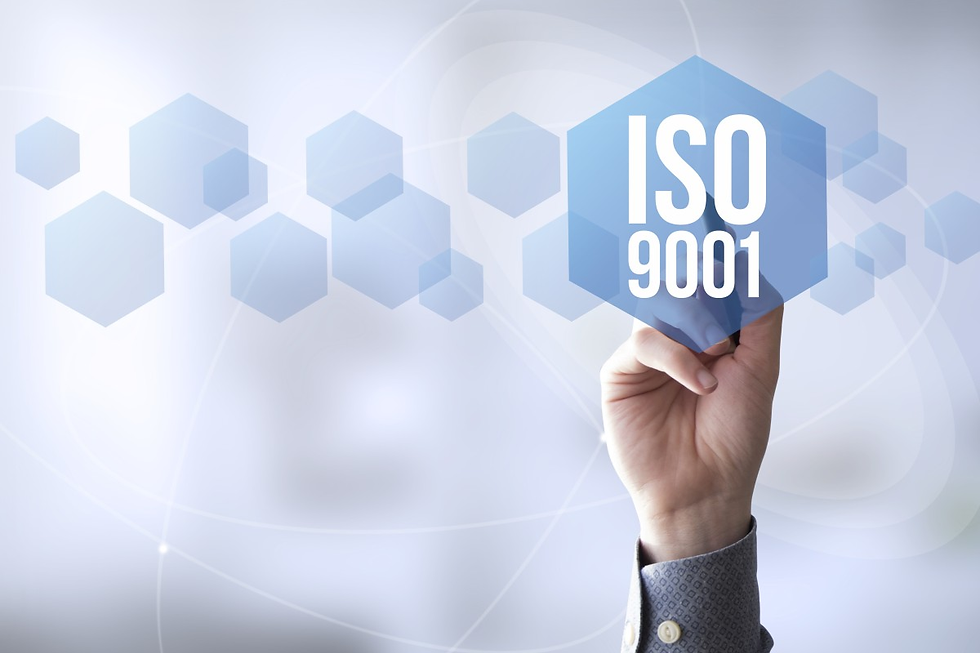A Business Leader’s Checklist for Evaluating SaaS Security and Compliance Standards
- Alfredo Carranza
- Apr 17, 2024
- 3 min read
Updated: Jan 27
Software as a Service (SaaS) applications are integral to business operations, offering scalable, accessible, and cost-effective solutions.
However, the reliance on these services underscores the critical need for stringent security and compliance measures.
As a business leader, ensuring these standards are met and exceeded is paramount to safeguarding your data and maintaining trust with your clients.
Security Standards
NIST Cybersecurity Framework:Developed by the National Institute of Standards and Technology, the NIST Cybersecurity Framework offers a policy framework of computer security guidance for how private sector organizations in the U.S. can assess and improve their ability to prevent, detect, and respond to cyber attacks.
The framework provides a high-level taxonomy of cybersecurity outcomes and a methodology to assess and manage those outcomes.
NIST Privacy Framework:Complementing the cybersecurity framework, the NIST Privacy Framework is designed to help organizations identify and manage privacy risk to build innovative products and services while protecting individuals’ privacy.
For SaaS providers, adhering to the NIST Privacy Framework ensures they manage data responsibly and transparently.
ISO/IEC 27001:This international standard delineates requirements for an information security management system (ISMS), helping businesses manage security assets such as financial information, intellectual property, and employee details.
Obtaining ISO/IEC 27001 certification demonstrates a SaaS provider's commitment to security.
SOC 2:Tailored for cloud-based services, SOC 2 focuses on five trust principles:
security
availability
processing integrity
confidentiality
privacy
A SOC 2 report is essential as it attests to the robustness and effectiveness of a SaaS provider’s approach to data protection.
PCI DSS: PCI DSS compliance is non-negotiable for any SaaS application handling credit or debit card information.
This standard protects against data theft and fraud, ensuring all transactions are conducted securely.
Financial Regulations
Sarbanes-Oxley Act (SOX):SOX is mandatory for all publicly traded companies in the United States, focusing on the accuracy of corporate disclosures and the prevention of corporate fraud.
It includes requirements for financial reporting and data retention.
Gramm-Leach-Bliley Act:This act requires financial institutions to explain their information-sharing practices to their customers and to safeguard sensitive data.
For SaaS providers dealing with financial services, compliance with this act is crucial.
Privacy Standards
GDPR: The General Data Protection Regulation (GDPR) is critical for businesses operating within the EU or dealing with EU citizens' data.
It regulates how data must be handled securely and transparently, giving individuals greater control over their personal information.
CCPA: Similar to GDPR but specific to California, the California Consumer Privacy Act (CCPA) offers consumers extensive rights concerning their personal data.
Healthcare Compliance
HIPAA:For SaaS providers handling protected health information (PHI), HIPAA compliance ensures that all necessary safeguards are in place to protect sensitive health data.
This includes
physical
network
process security measures
Quality Management Standards
ISO 9001:This quality management standard helps businesses achieve consistent service quality and enhanced customer satisfaction.
ISO 9001 certification indicates a SaaS provider’s dedication to maintaining high standards.
ITIL Standards: These standards are designed for effective IT service management, offering a set of detailed practices that align IT services with business needs, focusing on improving service delivery and customer satisfaction.
Accessibility Standards
WCAG:The Web Content Accessibility Guidelines (WCAG) ensure that SaaS applications are accessible to all users, including those with disabilities.
Cloud Security
CSA STAR:The Cloud Security Alliance's Security, Trust & Assurance Registry (CSA STAR) is a comprehensive program for security assurance in the cloud.
SaaS providers who are CSA STAR certified demonstrate adherence to stringent security practices.
Your compliance evaluation checklist
To effectively evaluate a SaaS provider, use the following checklist:
Verify ISO/IEC 27001 and SOC 2 certifications.
Check compliance with relevant privacy laws (GDPR, CCPA).
Ensure PCI DSS compliance if handling payment data.
Confirm HIPAA compliance for health-related services.
Review ISO 9001 and ITIL compliance for service quality.
Assess accessibility compliance with WCAG.
Investigate cloud security with CSA STAR certification.
Choosing the right SaaS provider requires a careful and thorough evaluation of their security and compliance measures.
As standards evolve, it's crucial for business leaders to remain vigilant and update their evaluation processes to protect their operations and maintain customer trust.












Comments